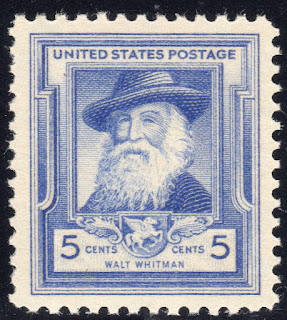Here are some events that happened on May 31st. It could be an event or a person that died or was born on that day
1819 Born: Walt Whitman, American poet, essayist, and journalist (d. 1892)
Walt Whitman (May 31, 1819 – March 26, 1892) was an American poet, essayist, and journalist. A humanist, he was a part of the transition between transcendentalism and realism, incorporating both views in his works. Whitman is among the most influential poets in the American canon, often called the father of free verse. His work was controversial in its time, particularly his poetry collection Leaves of Grass, which was described as obscene for its overt sensuality. Whitman's own life came under scrutiny for his presumed homosexuality.
Born in Huntington on Long Island, as a child and through much of his career he resided in Brooklyn. At age 11, he left formal schooling to go to work. Later, Whitman worked as a journalist, a teacher, and a government clerk. Whitman's major poetry collection, Leaves of Grass, was first published in 1855 with his own money and became well known. The work was an attempt at reaching out to the common person with an American epic. He continued expanding and revising it until his death in 1892. During the American Civil War, he went to Washington, D.C. and worked in hospitals caring for the wounded. His poetry often focused on both loss and healing. Two of his well known poems, "O Captain! My Captain!" and "When Lilacs Last in the Dooryard Bloom'd", were written on the death of Abraham Lincoln. After a stroke towards the end of his life, Whitman moved to Camden, New Jersey, where his health further declined. When he died at age 72, his funeral was a public event.
Whitman's influence on poetry remains strong. Mary Whitall Smith Costelloe argued: "You cannot really understand America without Walt Whitman, without Leaves of Grass ... He has expressed that civilization, 'up to date,' as he would say, and no student of the philosophy of history can do without him." Modernist poet Ezra Pound called Whitman "America's poet ... He is America."
US stamps depicting Walt Whitman
1852 Born: Francisco Moreno, Argentinian explorer and academic (d. 1919)
Francisco Pascasio Moreno (May 31, 1852 – November 22, 1919) was a prominent explorer and academic in Argentina, where he is usually referred to as Perito Moreno (perito means "specialist, expert"). Perito Moreno has been credited as one of the most influential figures in the Argentine incorporation of large parts of Patagonia and its subsequent development.
Moreno was born to Francisco and Juana Thwaites Madero in Buenos Aires. Raised in a traditional patrician family, he studied in local parochial schools. He shared his spare time with his father searching for artifacts and fossils and, at age 14, created a homemade museum of his extensive collections.
Following graduation in 1872, he participated in the founding of the Argentine Scientific Society. He embarked on the first of the series of scientific expeditions that made him well known: a survey of Río Negro Territory, largely uncharted country. In January 1876, he reached Lake Nahuel-Huapi in the southern Andes, and on February 15, 1877, he discovered and named Lake Argentino. He also explored numerous rivers in Patagonia. On March 2, he discovered and named Mount Fitz Roy, after the commander of the expedition of HMS Beagle in the 1830s. The native people also called it Chalten.
In 1880, Moreno went to France, where he spoke at a meeting of the Anthropology Society of Paris, discussing two prehistoric skulls he had unearthed in Río Negro territory. He believed one was from the Quaternary period, and the other had ritual deformation in a manner similar to the skulls of the Aymara people of the Andes and Altiplano.
After his return to Argentina, that year he embarked on his second major expedition to the territory of Patagonia. He was taken prisoner by a Tehuelche aboriginal tribe and condemned to death. He escaped on March 11, one day before the appointed execution. During this period he met the Tehuelche chief, Inacayal, who was hospitable to him. Later Inacayal led a resistance to the government, not surrendering until 1884.
In 1882–1883 Moreno explored the Andes from Bolivia southward, and in 1884–1885 he made new explorations of the territory south of the Río Negro and of Patagonia. He was appointed as chief of the Argentine exploring commission of the southern territories, and member of numerous European scientific societies. For his contributions to science, Moreno received a doctorate Honoris causa from the National University of Córdoba in 1877.
He is also known for his role in defending Argentine interests. He made defining surveys that led to the Boundary treaty of 1881 between Chile and Argentina. In honor to this contribution, the Argentinian glacier Perito Moreno, was named after him. These surveys and others yielded Moreno a vast collection of archaeological and anthropological data and artifacts, for which he founded an anthropological museum in Buenos Aires in 1877.
Argentinian stamp depicting Francisco Moreno



No comments:
Post a Comment